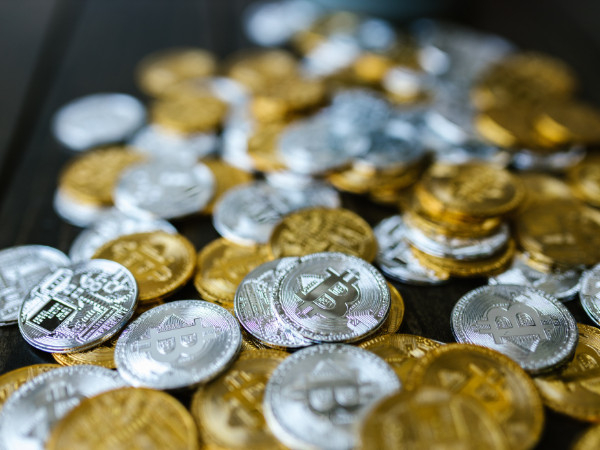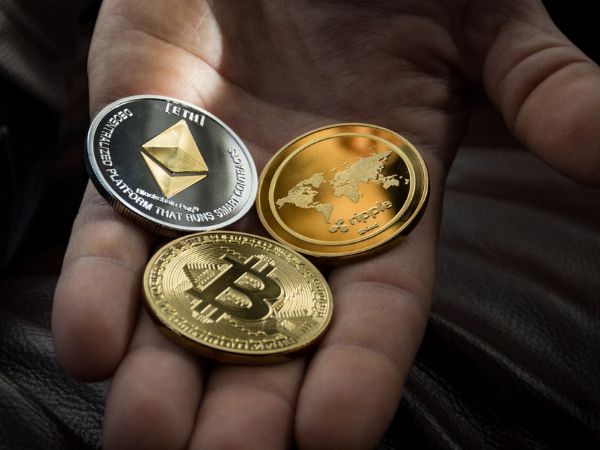How to mine cryptocurrency: A block-to-block guide
Learn how to mine cryptocurrency, and you can earn digital currency around the clock. Even better, you can buy the necessary tools yourself to start mining! In exchange, you help a cryptocurrency network operate.
If we’re going to talk about crypto mining, we need to start with bitcoin, the first and biggest crypto. Many of the cryptocurrencies nowadays work similarly to BTC, after all. More importantly, we’ll explain how regular folks can mine by themselves.
Cryptocurrency is turning out to be a valuable asset nowadays. That’s why more people mine it, from regular people to large tech firms. You may want to try it yourself since it could help you gather one of the hottest and newest assets in the world!
Why are people “mining coins”?
As #Bitcoin miners & exchanges come public, capital is going to surge into the industry from institutional investors via deals like this one, accelerating the expansion of the $BTC network. If you didn't factor this into your forecast, all your models are destroyed. https://t.co/Xcv1YKknmL
— Michael Saylor⚡️ (@saylor) April 8, 2021
It started with someone named Satoshi Nakamoto. This unknown person or group released the concept of a decentralized currency. It would run without needing governments or banks.
Instead, it would run for the people, by the people. Folks could pitch in with their computers and help run the system. Their machines made up the bitcoin network, also known as the blockchain.
The PCs verified transactions in the network. For their troubles, they earn block rewards in the form of more bitcoins. This practice became known as crypto mining. Here’s how it works:
- People engage in bitcoin transactions. These are protected by encryption. Miners can confirm them by figuring out a specific code for each transfer.
- The computers in the network, known as miners, try to crack this code. They do this by performing thousands of calculations per second!
- The first bitcoin miner to get the “winning solution” earns proof-of-work.
- A new block gets added to the blockchain, hence the name.
- The miner earns more bitcoins as a block reward.
Right now, the bitcoin block reward is 6.25 BTC. However, this depends on several factors, such as your mining method. These could reduce the amount you earn.
There were 21 million bitcoins back then. At the time of writing, there were 18,763,918 BTC in circulation. This amount is probably lower once you check the real-time supply count.
Can I mine cryptos too?
If you have enough money, you can mine cryptos yourself. Prepare to pay a lot for the necessary hardware and software. You must choose between ASIC or GPU mining.
You may buy an application-specific integrated circuit (ASIC) miner. These look like old-timey desktop CPUs. Yet, they’re specifically made for cryptocurrency mining.
That’s why they offer much more processing power for mining. ASIC miners are better for mining Bitcoin (BTC), Litecoin (LTC), and Dash (DASH).
However, it’s not ideal for other cryptos. Their creators didn’t like that ASIC miners were getting more coins than others. In response, they designed their cryptos to be ASIC-resistant.
Examples include Ethereum (ETH) and Monero (XMR). You’ll have a better time mining them if you’re using a graphics processing unit (GPU).
These are found inside graphics cards. That’s why many people bought them. They also became super expensive! As a result, supplies are hard to come by.
Graphics cards are designed for video games. That’s why they often have less computing power than ASIC miners. Still, they’re better for mining cryptos of various kinds.
Choose between an ASIC and a GPU. Note that you’ll have to spend a lot of time and effort to prepare either of them. Yet, you must base your choice on your desired cryptocurrency.
Afterward, it’s time to download and install bitcoin mining software. You have plenty of options on the internet. Read all you can think about them before choosing one.
Other ways to mine cryptocurrency
Don’t go out to buy your new mining rig just yet! Before you do, make sure you’ll make a profit. If you don’t, you might spend more than your potential block rewards!
You may earn up to 6.25 BTC from mining. Yet, you may not always earn this estimate. What is sure, though, is that you’ll spend thousands of dollars on powerful equipment.
Moreover, expect to rack up huge power bills. Crypto mining is well-known for its massive power usage. Depending on your country, you may have to pay a lot for an internet connection too.
Even with all this, crypto mining by yourself may still not be worth it. This ties into what we said about getting the “winning solution” first. This bumps up the difficulty level due to competition.
In other words, experienced miners still have more powerful rigs than you! If you still want to mine cryptocurrency, there are other ways. Choose between pool mining and cloud mining.
- Pool mining – Some people mine cryptos together to combine their computing power. As a result, these mining pools earn more than individual miners. The block rewards are split among the members so that you may earn less in a large group. Learn all about the requirements before you join a mining pool.
- Cloud mining – You may skip all the hassle of mining altogether! Other people or companies can mine cryptocurrency for you within a certain period. In exchange, you pay their fees. If your chosen crypto crashes, you may end up earning less from it.
Are there any problems with cryptocurrency mining?
Let’s set aside the difficulty level of crypto mining to talk about its issues. As we said, its biggest one is its enormous energy usage. Some say it is enough for an entire country!
Also, most people find it hard to become miners. The steep learning curve and high initial cost turn a lot of people off. This may cause another problem for the crypto networks.
Miners enable the blockchain to function. You need a certain amount to keep it running. It also needs more to expand and improve. That’s why some cryptos are switching to proof-of-stake.
It works like a savings account at a bank. You leave some cryptos in the network to receive more later. However, staking could net far more profits.
Your deposit helps the cryptocurrency’s features. Let’s take Uniswap (UNI), for example. UNI coin holders may place equal amounts of ETH and UNI in a liquidity pool.
This facilitates exchanges on the Uniswap platform. Also, holding UNI coins lets you vote on changes to the network. This allows more people to join and contribute to Uniswap.
Many of the latest coins are using proof-of-stake nowadays. Others are ditching the proof-of-work model for it. For example, Ethereum 2.0 will go from staking to mining.
Yet, El Salvador may solve mining’s power problem. The country is currently building a bitcoin mining facility that uses geothermal power. In turn, it will mine BTC using renewable energy.
Final Thoughts
If you still want to mine cryptocurrency, you should read other sources too. Make sure you have a good understanding of its benefits and risks. The same goes for investing.
You might want to buy altcoins instead of mining. Choose the right ones, and they’ll grow in value while you sleep! Choose from the hundreds of options listed in CoinMarketCap.
Don’t want to take that much time selecting coins? Read other crypto articles from Inquirer USA. These will give you ideas on a few promising additions to your portfolio.
Learn more about cryptocurrency mining
Is mining cryptocurrency profitable?
You may earn money from crypto mining. However, you need to plan it carefully. Otherwise, you may end up spending more than you earn!
How long does it take to mine 1 Bitcoin?
It takes around 10 minutes to mine a bitcoin. Yet, this may take longer since you’re competing against other miners. That’s why you need a powerful mining rig.
How many bitcoins are left?
At the time of writing, BTC’s circulating supply is 18,763,918. Trading and mining continue, though, so this may have changed when you check real-time data.
If you are interested in content marketing, please email Anthony@Inquirer.net.
Disclaimer: This article is the author’s personal opinion, differing from the “official” statements or facts. All writers’ opinions are their own and do not constitute financial advice in any way whatsoever. Nothing published by Inquirer.net constitutes an investment recommendation, nor should any data or content published by Inquirer.net be relied upon for any investment activities.
Usa.inquirer.net strongly recommends that you perform your own independent research and/or speak with a qualified investment professional before making any financial decisions.
Sponsored Advertising Content:
Advertorial or Sponsorship User published Content does not represent the views of the Company or any individual associated with the Company, and we do not control this Content. In no event shall you represent or suggest, directly or indirectly, the Company's endorsement of user published Content.
The company does not vouch for the accuracy or credibility of any user published Content on our Website and does not take any responsibility or assume any liability for any actions you may take as a result of reading user published Content on our Website.
Through your use of the Website and Services, you may be exposed to Content that you may find offensive, objectionable, harmful, inaccurate, or deceptive.
By using our Website, you assume all associated risks.This Website contains hyperlinks to other websites controlled by third parties. These links are provided solely as a convenience to you and do not imply endorsement by the Company of, or any affiliation with, or endorsement by, the owner of the linked website.
Company is not responsible for the contents or use of any linked website, or any consequence of making the link.
This content is provided by New Start Advantage LLC through a licensed media partnership with Inquirer.net. Inquirer.net does not endorse or verify partner content. All information is for educational purposes only and does not constitute financial advice. Offers and terms may change without notice.




